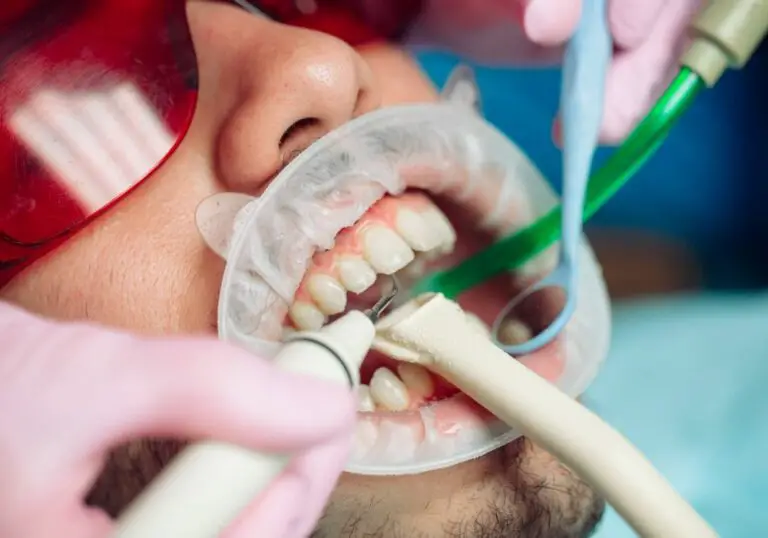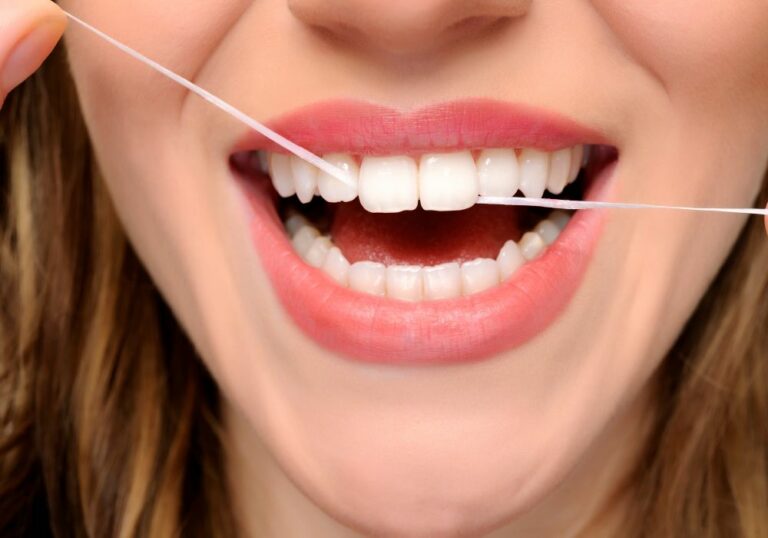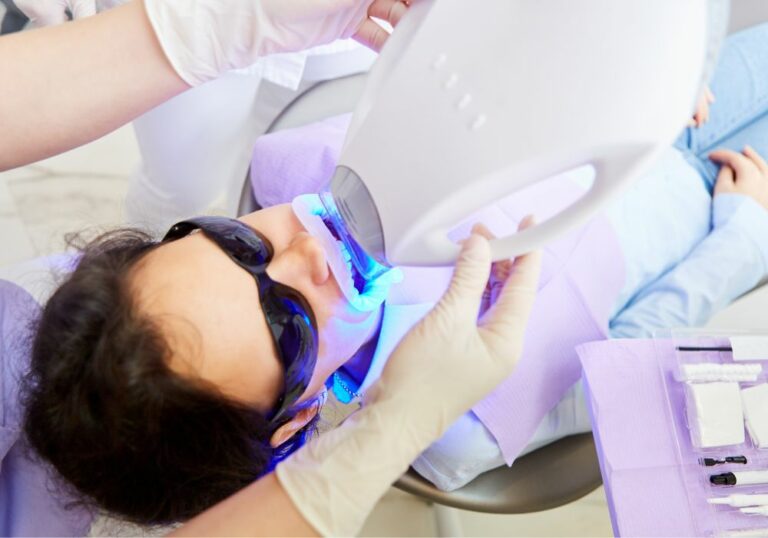Do you experience bleeding when you brush your teeth? If so, you are not alone. Bleeding gums are a common issue that many people face. However, it is important to address this issue as it can be a sign of a more serious problem. In this article, we will discuss what to do when your teeth bleed when you brush them.
There are several reasons why your gums may bleed when you brush your teeth. One of the most common causes is gingivitis, a condition where your gums become inflamed due to plaque buildup. Poor flossing technique and brushing too aggressively can also cause bleeding gums. If you are experiencing bleeding gums, it is important to address the issue as soon as possible to prevent further damage.
There are several steps you can take to address bleeding gums. First, make sure you are brushing and flossing properly. Use a soft-bristled toothbrush and be gentle when brushing. Floss daily to remove plaque buildup between your teeth. If your bleeding gums persist, it may be time to visit your dentist. Your dentist can determine the cause of your bleeding gums and recommend the appropriate treatment.
Understanding Why Your Teeth Bleed

If you’ve noticed that your teeth bleed when you brush them, it’s important to understand why this is happening. There are several reasons why your teeth may bleed, and understanding the cause can help you take steps to prevent it from happening in the future.
One common cause of bleeding teeth is gum disease. Gum disease occurs when bacteria build up on your teeth and gums, causing inflammation and bleeding. If left untreated, gum disease can lead to tooth loss and other health problems.
Another common cause of bleeding teeth is brushing too hard. When you brush your teeth too hard, you can damage your gums, causing them to bleed. To prevent this from happening, use a soft-bristled toothbrush and brush gently.
If you’re experiencing bleeding teeth, it’s also important to consider your overall oral hygiene habits. Poor oral hygiene can lead to a buildup of plaque and bacteria on your teeth and gums, which can cause bleeding. Be sure to brush your teeth twice a day, floss daily, and visit your dentist regularly for cleanings and checkups.
Other factors that can contribute to bleeding teeth include hormonal changes, certain medications, and vitamin deficiencies. If you’re experiencing bleeding teeth and are unsure of the cause, it’s important to speak with your dentist to determine the underlying issue.
In summary, bleeding teeth can be a sign of gum disease, brushing too hard, poor oral hygiene, hormonal changes, certain medications, and vitamin deficiencies. By understanding the cause of your bleeding teeth, you can take steps to prevent it from happening in the future and maintain good oral health.
Common Causes of Bleeding Gums
If you’re experiencing bleeding gums when brushing your teeth, there are a few common causes that could be to blame. Here are some of the most common reasons your gums may be bleeding:
Gingivitis
Gingivitis is the most common cause of bleeding gums. It’s a mild form of gum disease that occurs when plaque builds up on your teeth and gums, causing inflammation and bleeding. If left untreated, gingivitis can progress to more serious forms of gum disease, so it’s important to take action as soon as you notice symptoms like bleeding gums.
Periodontitis
If gingivitis is left untreated, it can progress to periodontitis, a more serious form of gum disease. Periodontitis occurs when the gums pull away from the teeth, creating pockets that become infected. This can lead to bone and tooth loss if not treated promptly. Symptoms of periodontitis include bleeding gums, bad breath, and loose teeth.
Brushing Technique
If you’re brushing your teeth too hard or using a toothbrush with bristles that are too hard, it can cause your gums to bleed. Make sure you’re using a soft-bristled toothbrush and brushing gently in circular motions. Avoid using a back-and-forth sawing motion, as this can irritate your gums and cause bleeding.
In addition to these common causes, other factors like hormonal changes, vitamin deficiencies, and certain medications can also cause bleeding gums. If you’re experiencing bleeding gums, it’s important to talk to your dentist to determine the underlying cause and develop a treatment plan.
Symptoms to Watch Out For

If you notice blood on your toothbrush or in the sink after brushing your teeth, it can be alarming. Bleeding gums are not normal and can be a sign of an underlying dental problem. Here are some symptoms to watch out for:
- Red, swollen, or tender gums
- Receding gums
- Loose teeth
- Persistent bad breath or bad taste in your mouth
- Changes in your bite or the way your teeth fit together
- Pus around your teeth and gums
- Mouth sores
If you experience any of these symptoms, it’s important to see a dentist as soon as possible. Ignoring bleeding gums can lead to more serious dental issues, such as periodontitis, a severe form of gum disease that can cause tooth loss.
It’s also important to note that bleeding gums can sometimes be a sign of an underlying health issue, such as a vitamin deficiency or blood clotting disorder. If you have persistent bleeding gums, it’s a good idea to speak with your doctor to rule out any underlying medical conditions.
In summary, if you notice bleeding gums while brushing your teeth, it’s important to pay attention to any other symptoms you may be experiencing and see a dentist or doctor if necessary. Early intervention can prevent more serious dental or health problems down the road.
Preventive Measures

To prevent bleeding gums when brushing your teeth, there are a few preventive measures you can take. These measures include maintaining oral hygiene, regular dental checkups, and a balanced diet.
Maintaining Oral Hygiene
Maintaining good oral hygiene is key to preventing bleeding gums. Brush your teeth twice a day with a soft-bristled toothbrush and fluoride toothpaste. Floss daily to remove any food particles and plaque from between your teeth. Use an antiseptic mouthwash to kill bacteria and freshen your breath.
Make sure you brush your teeth gently and avoid brushing too hard, as this can damage your gums. Use a toothbrush with soft bristles and replace it every three to four months.
Regular Dental Checkups
Regular dental checkups are important for maintaining good oral health. Your dentist can identify any dental problems early on and provide treatment to prevent them from getting worse.
During your dental checkup, your dentist will examine your teeth and gums for any signs of bleeding, inflammation, or infection. They may also recommend a professional cleaning to remove any built-up plaque or tartar.
Balanced Diet
A balanced diet is important for maintaining good oral health. Eat a diet rich in fruits and vegetables, whole grains, and lean proteins. Avoid sugary and acidic foods, as they can damage your teeth and gums.
Make sure you drink plenty of water to help wash away any food particles and bacteria from your mouth. Chewing sugar-free gum after meals can also help stimulate saliva production, which can neutralize acids and prevent tooth decay.
By following these preventive measures, you can help prevent bleeding gums when brushing your teeth. If you experience persistent bleeding or other dental problems, make sure to consult your dentist for further evaluation and treatment.
When to See a Dentist

If your teeth bleed when you brush them, it’s important to take action to prevent further damage to your oral health. While many cases of bleeding gums are caused by improper brushing or flossing techniques, there are certain situations where you should seek professional dental care. Here are some signs that you should see a dentist:
Persistent Bleeding
If your gums continue to bleed after a few days of improving your oral hygiene routine, you should make an appointment with your dentist. This could be a sign of gum disease, which can lead to more serious oral health problems if left untreated. Your dentist can assess the severity of your condition and recommend a treatment plan to help you get your gums back to a healthy state.
Pain and Swelling
If you experience pain or swelling in your gums in addition to bleeding, you should see a dentist as soon as possible. This could be a sign of an infection or abscess, which can cause serious damage to your teeth and gums if left untreated. Your dentist can diagnose the problem and provide you with the appropriate treatment to prevent further complications.
Loose Teeth
If your teeth are starting to feel loose or wobbly, it’s important to see a dentist right away. This could be a sign of advanced gum disease, which can cause your teeth to loosen and eventually fall out. Your dentist can assess the condition of your gums and teeth and provide you with a treatment plan to prevent further damage.
Remember, regular dental checkups are an important part of maintaining good oral health. If you’re experiencing bleeding gums or any other oral health problems, don’t hesitate to make an appointment with your dentist. With proper care and treatment, you can get your oral health back on track and prevent more serious problems from developing.
Frequently Asked Questions
What causes gums to bleed when flossing?
Bleeding gums when flossing is usually a sign of gum disease, which is caused by the buildup of plaque and bacteria on your teeth. When you floss, you remove the plaque and bacteria from between your teeth, which can cause your gums to bleed if they are inflamed or infected.
How can I prevent my gums from bleeding when brushing?
To prevent your gums from bleeding when brushing, you should make sure to brush your teeth twice a day for two minutes each time, using a soft-bristled toothbrush. You should also floss daily to remove any plaque and bacteria from between your teeth. Additionally, you should avoid smoking and eat a healthy diet rich in fruits and vegetables.
What are some home remedies for bleeding gums?
Some home remedies for bleeding gums include rinsing your mouth with salt water, using aloe vera gel, and applying a cold compress to your gums. You can also try using a mouthwash that contains hydrogen peroxide or baking soda.
Is it normal for gums to bleed when brushing teeth?
No, it is not normal for your gums to bleed when brushing your teeth. Bleeding gums are usually a sign of gum disease, which is a serious condition that can lead to tooth loss if left untreated.
What are some common causes of bleeding gums?
Some common causes of bleeding gums include gum disease, poor oral hygiene, hormonal changes, vitamin deficiencies, and certain medications. Additionally, smoking and stress can also contribute to bleeding gums.
When should I see a dentist for bleeding gums?
You should see a dentist for bleeding gums if they persist for more than a week, if you have other symptoms such as bad breath or loose teeth, or if you have a family history of gum disease. Your dentist can perform a thorough examination and recommend the best treatment plan for your specific needs.






